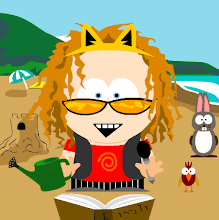“See that castle over there?” my colleague scowls, directing my attention toward the ruins out the bus window long after we'd crossed the border into Slovakia. “That's a HUNGARIAN castle.” I widen my eyes and nod as he watches my face longer than necessary, searching for signs of treason.
***
That's the opening paragraph of an essay I wrote about going on a skiing trip with my school when I taught English in Hungary. Further along it continues like so:
“Where you're standing,” my co-worker begins again during a pit stop, “was aaaaaaaaall our country.” I survey the portable toilets, the spike-heeled women leaning against truck cabs. “Uh-huh,” I manage, and sip my Coke nervously.
***
The essay focuses mostly on my complete ineptitude on a ski slope while touching on the complicated history of Eastern Europe and a notion I encountered in Hungary that I like to call “armchair nationalism.”
The Hungarians can be somewhat nostalgic, shall we say, for their empire. What empire? you ask, the Austro-Hungarian Empire, sillies, which held its close out sale pretty near a century ago. But nevermind dates, those maps of the Glory Days are still rolling off the presses and hanging on Soviet-thin walls of apartments across the country, apartments belonging to old men who raise themselves slightly off the seat of their armchairs to point at them with shaking fingers thick as sausage links - “aaaaaaaaall
our country!”
I began my year in Hungary knowing just three phrases in the language. They were “thank you,” “fuck you” and “I'm a vegetarian.”
When you think about it, without an extended stay, you can do pretty well on these little gems. But of course, after a while, I grew tired of the man at the photo developing shop shouting me deaf in German and decided to learn more. (One of the next things I added to my repertoire was “I don't speak German.”)
Eventually, with the help of a book, a tape, my students, an occasional tutor and lots of hands on life experience, I learned a decent amount of Hungarian. One of my obstacles to learning more, however, was that my other American friends sucked big time - as in huge juicy lemons - when it came to even ordering a bottle of wine. After months and months of being there they were still so pathetic, anything I could squeak out and with the help of hand motions get a native to understand made me look like I was some kind of linguistic savant.
The other deterrent to studying harder was the Hungarians themselves. They held deeply schizophrenic views of their native tongue. One day I'd hear, “Have you been practicing your Hungarian? HOW long have you been here? Let's hear what you can say, mm?” The same afternoon I'd get, “What in the world are you learning Hungarian for? It's a completely useless language! Stick to English. Take up French.”
Their patriotism, though sincere, contained some profound insecurities, or deep-seated doubts. I can relate. And I seem to have similar voices in my own head when it comes to what to do about political engagement three and a half years after the dawn of motherhood. One day the voices say “HOW old is your kiddo? Let's see what you can get out there and do to turn this place around for him, mm?” And a few hours on they croon, “What in the world are you thinking about political action for? It's useless to bang your head against the wall. You're busy; you're tired; you're doing all you can. Stick to day to day interaction with your son. That's where change begins. Introduce him to the world slowly. Take up French.”
I just don't know what to do. Read the paper or Dr Seuss. Volunteer for phone banking or discuss what brown spiders might eat for the better half of an afternoon.
I just don't want any bastards taking over our government again. When I look out my window, I want to feel like I have some say here, some control over how things go and how they got to be that way. I want to look out and think that's “aaaaaaaaaall
our country.”


 So you go to your husband's office holiday party with your unnapped child and think you won't stay long. But two hours later you find yourself standing guard behind your pick at the auction, while your child sways, closer and closer to the floor and complains loudly about the lack of a dessert table. The beer is good and free and you think that if this goes on much longer, you're right there with him.
So you go to your husband's office holiday party with your unnapped child and think you won't stay long. But two hours later you find yourself standing guard behind your pick at the auction, while your child sways, closer and closer to the floor and complains loudly about the lack of a dessert table. The beer is good and free and you think that if this goes on much longer, you're right there with him.

















 I've decided I despise all of my clothes and wouldn't miss a thing if I suddedly discovered my closet raided by gypsies, eaten by crows, or stripped to threads by microscopic weavers from a parallel universe where everything moves backwards. (I'll pause here while you recover from that strange and terrifying image.) ...
I've decided I despise all of my clothes and wouldn't miss a thing if I suddedly discovered my closet raided by gypsies, eaten by crows, or stripped to threads by microscopic weavers from a parallel universe where everything moves backwards. (I'll pause here while you recover from that strange and terrifying image.) ...
